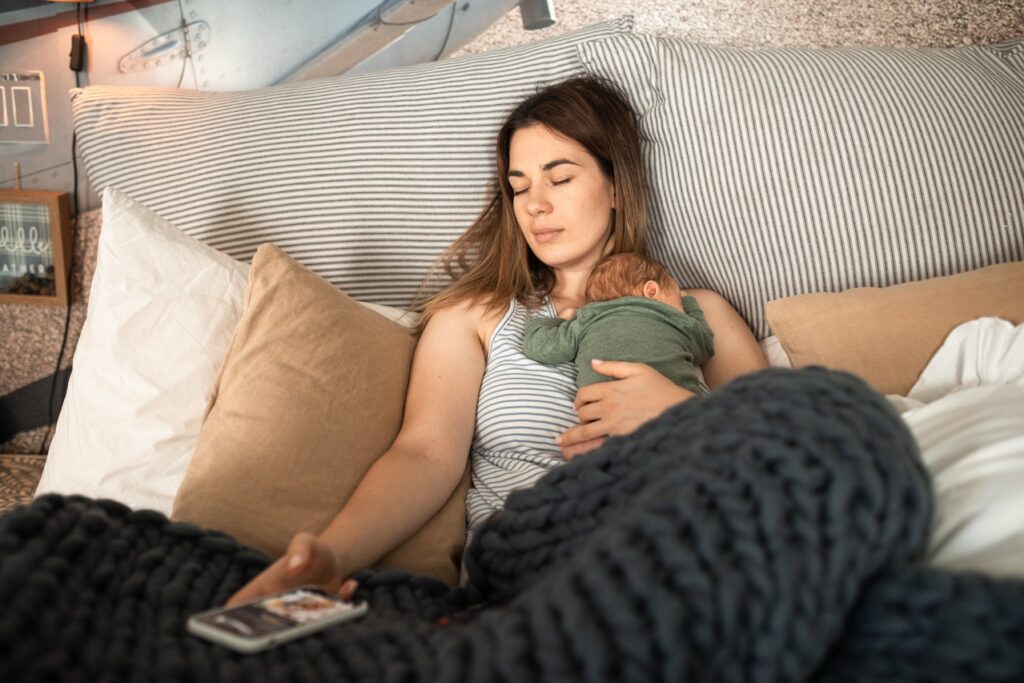
Developing healthy sleep habits with your newborn
Caring for a newborn might leave you so exhausted that you could fall asleep anytime, anywhere – but that’s not always the case. When you’re slogging through the sleep desert of the first months of parenthood, you may wonder if there’s hope for getting through this difficult time. Believe it or not, getting enough sleep for yourself is one way of taking better care of your baby.
The most common hiccups start in the morning and can chart the course for the day. Drinking too much caffeine in the morning tops the list of actions that can throw your sleep routine off track. Most healthy adults can safely consume up to 400 mg of caffeine a day. The equivalent of 4 cups of coffee or 2 energy drinks. The effectiveness of caffeine generally starts in 15 minutes and can last an hour later. According to the Cleveland Clinic, six hours after caffeine is consumed, half of it is still in your body and can take up to 10 hours to completely clear your bloodstream.
Many sleep experts suggest that people set a standard wake time and stick with it, even on the weekends. On the other hand, there can be benefits to catching up on sleep, especially if you have a big sleep debt. However, your body’s natural sleep schedule wants to stay in a reliable schedule, or circadian rhythm.
Your body’s circadian clock is most sensitive to light starting about two hours before your usual bedtime and lasting throughout the night up until about one hour before your usual wake time, per the CDC. Exposure to light during these times will affect when your body naturally gets sleepy and is ready to fall asleep.
Creating a to-do list is one of the most powerful things you can do to stay on track throughout the day. It can also be an effective way to combat anxiety that often creeps up at bedtime and makes it hard to fall asleep. Effectively, giving you something concrete to refer to when your brain feels like mush.
Checking your phone immediately after waking means you’re letting someone else dictate what’s on your mind first thing. At that point, it can be a lot more difficult to return to an intentionally calm state. So do yourself a favor and set the tone for the day by using an alarm clock rather than relying on your phone to wake you up. And try your best to make sure the time when you wake up and before you go to bed is phone-free.
Research Shows Children Who Fall Asleep on Their Own May Sleep Longer
Infants and toddlers who learn how to fall asleep on their own at night sleep for a longer duration, according to survey of more than 1,000 parents published in in the World Journal of Pediatrics. Researchers also found these children woke up fewer times at night than those who did not fall asleep on their own.
In addition, the study found that children of parents who worked full time were more likely to have a shorter nighttime sleep duration than those of parents who didn’t work full time.
The good news is older children had fewer problems with nighttime awakenings and slept for longer stretches. So if you’re a new parent who isn’t sleeping much, this will likely pass with time.
Get Started
Background Checks for Nannies sets the standard for providing high-quality caregiver background screenings to parents and legal guardians. If you have any questions regarding our products or services, please contact us and we will get back to you as soon as possible.
